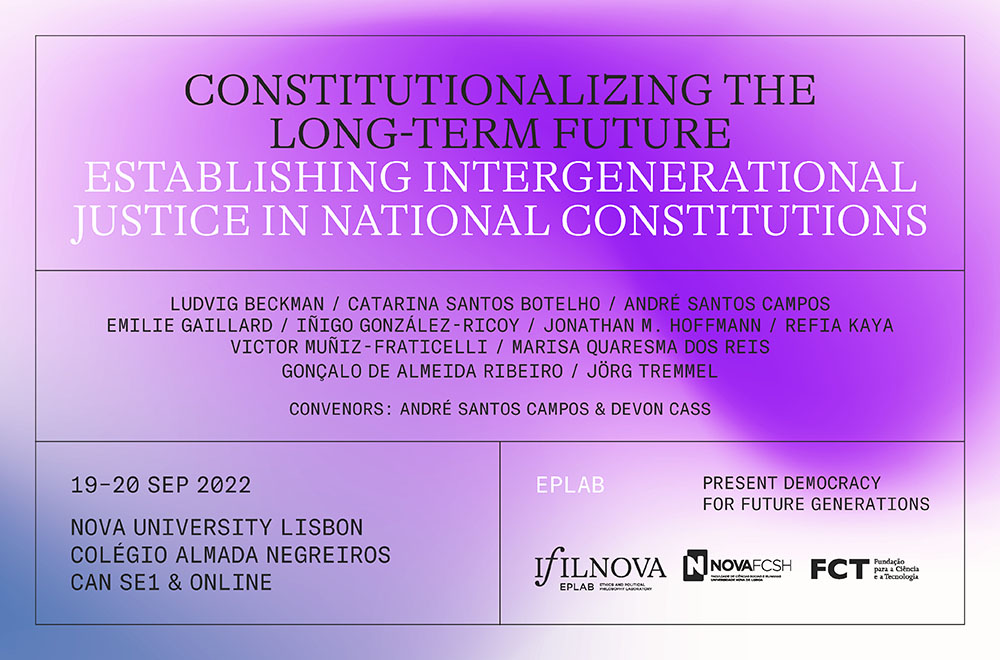Constitutionalizing the Long-term Future

It is often assumed that current societies are likely to affect future generations in a way that is potentially harmful to them. For liberal democracies, this is particularly problematic. Their bias towards the present arises from many institutional, cultural, and anthropological factors, such as election cycles, the influence of special interest groups, and cognitive difficulties concerning ‘creeping problems’. Still, they seem to have robust reasons for acting fairly towards future generations since the foundations of democracy are not insensitive to morality.
Consequently, several countries have taken measures to facilitate long-term oriented decision-making. One of those measures is the inclusion of intergenerational clauses in written constitutions. Constitutions often seem like the best means to constrain policymakers to think in distant time frames and citizens to engage in coordination and certainty strategies for the long run. However, this entrenchment of cross-temporal clauses, such as ‘posterity protection provisions’ (PPPs), in constitutional texts has not proven successful in inducing long-term policymaking. No direct causal relation seems to have ensued between those provisions and the implementation of further norms and policies that operationalize such legal background.
This circumstance calls our attention not only to the efficacy of cross-temporal constitutional provisions but also to their legitimacy. This international conference aims to assess, compare, and explain the extent to which constitutions can be appropriate instruments to protect and prepare for the future effectively and without inherent contradiction.
Participation is free and all are welcome. If you wish to receive the Zoom link, please contact Devon Cass: devoncass@fcsh.unl.pt.
NOVA University Lisbon – School of Social Sciences and Humanities, Lisbon
Catarina Santos Botelho (Porto Faculty of Law, Universidade Católica Portuguesa)
André Santos Campos (NOVA University Lisbon)
Emilie Gaillard (Université de Caen)
Iñigo González-Ricoy (Universitat de Barcelona)
Jonathan M. Hoffmann (University of Warwick)
Refia Kaya (Hacettepe University Law Faculty)
Victor Muñiz-Fraticelli (McGill University, Faculty of Law)
Marisa Quaresma dos Reis (ISEG, Lisbon)
Gonçalo de Almeida Ribeiro (Judge of the Constitutional Court of Portugal. Professor of Law, Universidade Católica Portuguesa)
Jörg Tremmel (University of Tübingen)
Devon Cass (NOVA University Lisbon)

